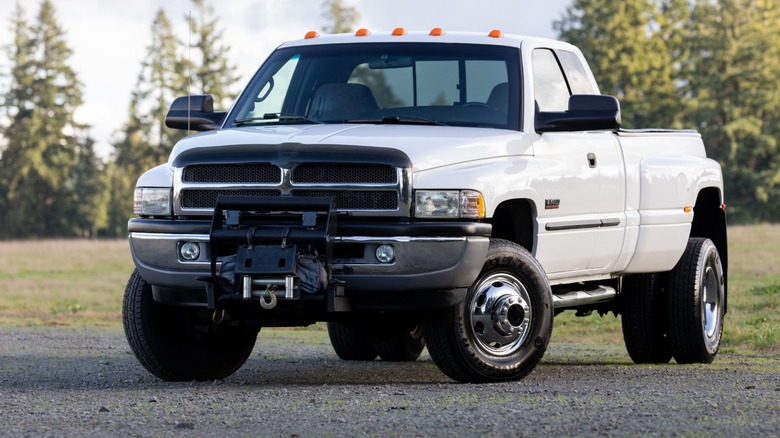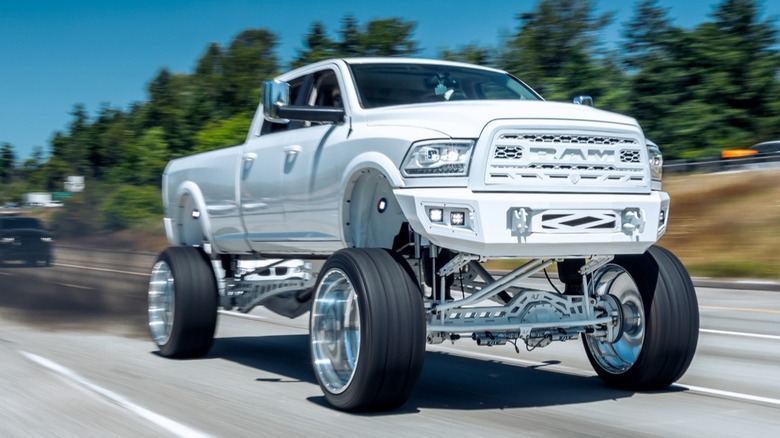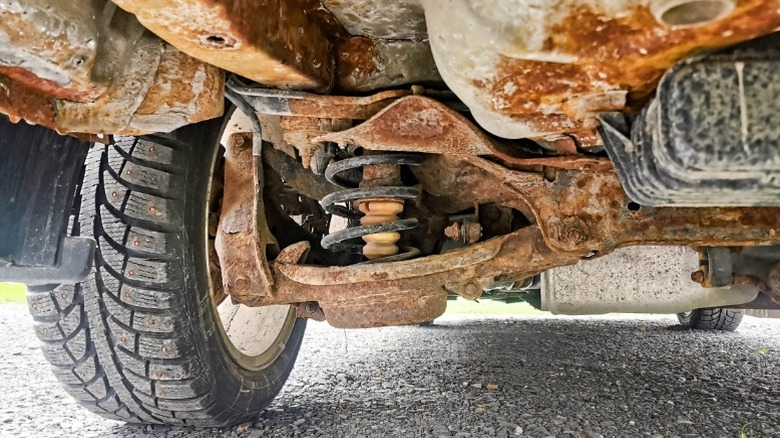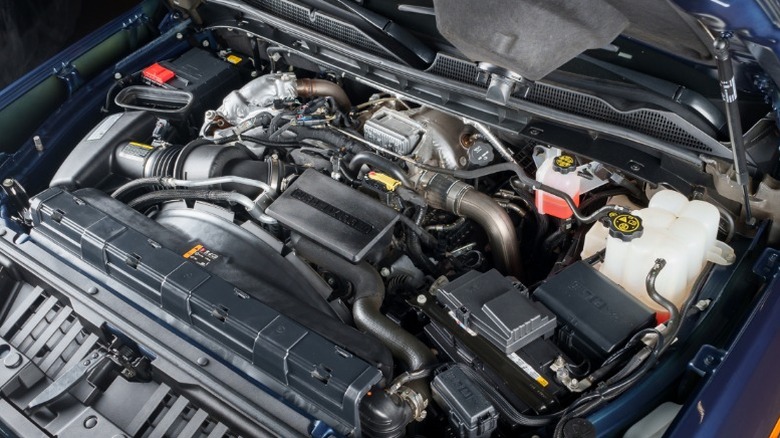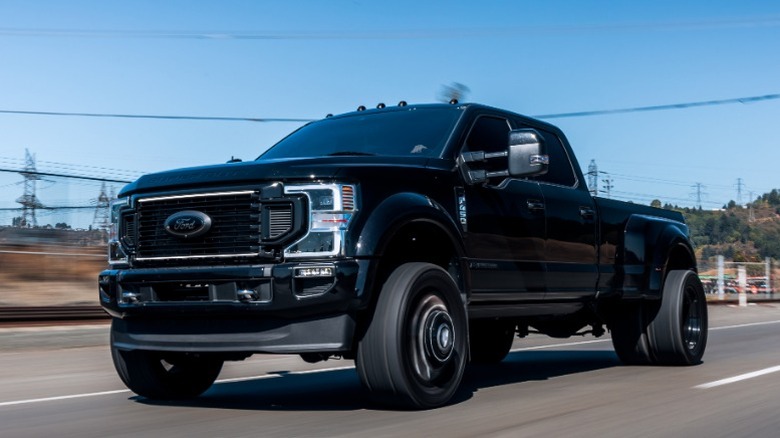Used Diesel Truck Checklist: 5 Things To Look For Before You Buy
Buying a new vehicle can be a fun and exciting experience. However, it can also pose a lot of stressors and challenges. That's especially true when it comes to buying a used car, as used vehicles can come with hidden mechanical defects, and they may not be covered by a warranty or guarantee. All of those challenges can become even more imposing if you're looking for a used diesel truck. That's because diesel vehicles are distinct from gas cars in various ways, and if you're not an expert, there are several things you may overlook when shopping for a used diesel pickup.
For one, diesels are often subject to different regulations regarding emissions than are gas-powered vehicles. Diesel trucks also see a lot of use as work vehicles, meaning it's not uncommon for diesel pickups to have high mileage and other symptoms of years spent hauling heavy loads or pushing plows. Due to these factors and various others, shopping for a used diesel truck can be arduous, to say the least.
Fortunately, we can help with that. As a former professional auto repair technician who has worked on thousands of diesel trucks, I'll share some tips and tricks for buying one used. Remember, there are various differences between gas and diesel vehicles. While the buying process can be similar, there are also a few extra precautions you should take when searching for a diesel truck, which is exactly what we'll explore together in this article. So, from understanding the mileage to checking for illegal modifications, here are five things to look for before you buy a used diesel truck.
Check the mileage
One of the first things you should look for in a used diesel truck is the mileage. That may seem obvious, as most people are aware of the importance of a vehicle's mileage. However, it's worth mentioning specifically for diesels because what we consider high mileage for diesel vehicles isn't always the same as for gas cars.
When it comes to gasoline engines, 75,000 to 100,000 miles is the standard threshold for what's considered "high mileage." In fact, that's usually when manufacturers and experts recommend that drivers begin using high mileage engine oil. However, diesel engines are often more efficient than gas engines, and it's not uncommon for diesel vehicles to exceed 200,000 to 300,000 miles. It's important to consider these differences, because many people will look at a gas engine with 150,000 miles and will move to the next option. When it comes to diesel trucks, 150,000 miles isn't always that much — it does depend on other factors, though, which is what we'll explain now.
When you're shopping for a used diesel, it's vital that you ask about the vehicle's history. That's because there can be a big difference between a work truck with 100,000 miles and any other personal vehicle with the same mileage. It's also worth remembering that diesel trucks — especially if they're used as work trucks — are often left idling for extended periods, which won't rack up mileage on the odometer, but will still lead to wear and tear. Ask to see maintenance records and about the type of work the truck performed. Doing so will help you determine if the truck was well-treated or used and abused.
Look out for illegal or improperly-installed modifications
Remember how we said diesel vehicles are often subject to different rules and regulations regarding emissions? That leads us into our next point: keep an eye out for illegal or improperly-installed modifications. That rule applies to all cars, but it's especially important when it comes to shopping for a used diesel truck due to the frequency with which people remove, modify, or delete diesel emissions control systems.
One of the most common mods you're likely to encounter on a used diesel truck is a straight pipe exhaust system. As the name implies, a straight pipe exhaust system is essentially a straight pipe running from the engine's exhaust manifold to wherever the previous owner decided to chop it off. The defining features of these systems include missing catalytic converters and mufflers and extremely loud performance. Many enthusiasts favor these mods due to that enhanced exhaust sound as well as the small horsepower boosts that they can provide.
However, removing the catalytic converter from a diesel truck — or any other vehicle — is illegal, not to mention extremely harmful to the environment. Considering it's such a common mod, you should definitely check for a straight pipe system when looking for a used diesel truck. Signs of a straight pipe system can include a very loud exhaust, excessive smoke, and an exhaust pipe jutting out from the side of the truck.
Besides straight pipe exhaust systems, you'll also want to look out for other illegal modifications, like diesel exhaust fluid (DEF) system deletes, as well as improperly installed legal ones. Things like performance chips, air intake systems, and suspension upgrades are legal in most places. However, not everyone installs these parts correctly, which can lead to mechanical defects and performance issues.
Check for rust, corrosion, and excessive wear and tear
The next thing you need to look out for when buying a used diesel truck is excessive rust, corrosion, and wear. This is true for all vehicles, but it's especially important for diesel trucks that have been used for work or that have seen a lot of use in areas with harsh winters or humid summers. Most people are aware of the fact that local weather plays a large role in whether a car develops rust and corrosion. That's because things like humidity, ice, and road salt all contribute to the development of corrosion and damage over time.
Many people who live in areas that experience this type of weather don't have time to constantly wash their cars all winter long, which means that all of that salt and grime often sits on metal components for months at a time. While one severe winter is unlikely to cause large amounts of rust to form, several years' worth of heavy winters can contribute to a lot of corrosion. These factors are intensified in the case of work trucks. It's common for diesel pickups to be used as snow plows and other service vehicles. These rigs see huge amounts of use during a season, and they can develop corrosion and stress damage more quickly than a daily driver used to commute to and from the office.
It's important that you inspect the vehicle thoroughly to look for things like rust and damage. It's especially critical that you check the frame rails and suspension system, as these parts are some of the most likely to be affected by things like snow, humidity, salt, and heavy workloads.
Inspect the fluids
It probably goes without saying that you should be checking the fluids any time you're looking for a used car. However, it's worth going into a bit more detail here, due to a couple of differences between gas and diesel engines.
First of all, used diesel engine oil is typically pitch black. That's worth mentioning because the standard engine oil used in gasoline motors very rarely reaches such a dark tone — if it does, it's usually a sign that the vehicle has gone way too long without a replacement or there are other issues at play. However, in diesel engines, the dark color is totally normal, thanks to the soot that these engines produce while burning. Remember this when inspecting the engine bay — while extremely dark oil is usually a red flag for gas vehicles, it's perfectly normal for a diesel engine.
Next, it's important to remember that, if you're shopping for a newer used diesel truck, you'll need to check the DEF system. That means any diesel built from 2010 onward should have the system in place. We already mentioned that it's vital that you check to ensure that the system has not been tampered with or removed, but it's also critical that you inspect the fluid level and condition. That's because running out of DEF can be catastrophic for your engine. Some of the first symptoms of an empty DEF tank can include things like reduced performance and exhaust clogs, and it can cause the vehicle to enter limp mode. If you don't address those issues in a timely fashion, the engine is liable to develop worse and worse problems, meaning you should always check the DEF system before purchasing a used diesel truck.
Take it for a test drive
Another thing that many people may overlook when buying a used vehicle is the test drive. However, the test drive is arguably one of the most important parts of shopping for a new car, whether it's used or not, and it's something that you absolutely cannot skip.
That's because the test drive is not only your chance to determine whether the vehicle is comfortable and enjoyable to drive for you personally — it's also a fantastic opportunity to identify mechanical malfunctions and other problems. The test drive is the culmination of the inspection process. It's the time when you can take all of the knowledge you've gained from inspecting the vehicle physically and compare it against the truck's handling, sound, comfort, and more.
During the test drive, you'll want to stay alert for any abnormal sounds, like clunking, grinding, whining, or knocking. You'll also need to pay close attention to how the vehicle handles. That doesn't just mean driving the truck to determine whether it's comfortable for you, either. It also means feeling for things like vibrations in the steering wheel and brake pedal, lurches in the transmission, and various other strange sensations. The test drive is especially important if you're buying a heavily-used work truck to identify obvious issues, and it's an absolutely essential part of any diesel truck buying process.
